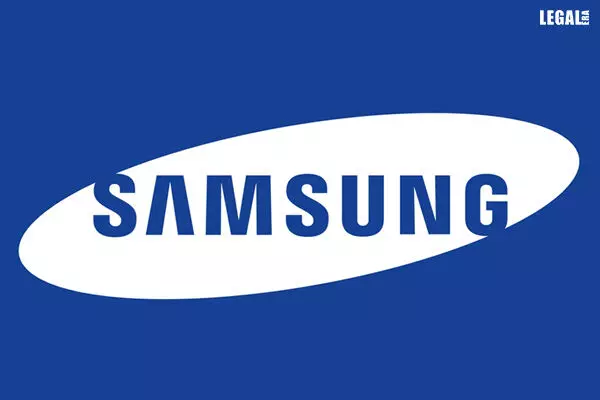- Home
- News
- Articles+
- Aerospace
- Artificial Intelligence
- Agriculture
- Alternate Dispute Resolution
- Arbitration & Mediation
- Banking and Finance
- Bankruptcy
- Book Review
- Bribery & Corruption
- Commercial Litigation
- Competition Law
- Conference Reports
- Consumer Products
- Contract
- Corporate Governance
- Corporate Law
- Covid-19
- Cryptocurrency
- Cybersecurity
- Data Protection
- Defence
- Digital Economy
- E-commerce
- Employment Law
- Energy and Natural Resources
- Entertainment and Sports Law
- Environmental Law
- Environmental, Social, and Governance
- Foreign Direct Investment
- Food and Beverage
- Gaming
- Health Care
- IBC Diaries
- In Focus
- Inclusion & Diversity
- Insurance Law
- Intellectual Property
- International Law
- IP & Tech Era
- Know the Law
- Labour Laws
- Law & Policy and Regulation
- Litigation
- Litigation Funding
- Manufacturing
- Mergers & Acquisitions
- NFTs
- Privacy
- Private Equity
- Project Finance
- Real Estate
- Risk and Compliance
- Student Corner
- Take On Board
- Tax
- Technology Media and Telecom
- Tributes
- Viewpoint
- Zoom In
- Law Firms
- In-House
- Rankings
- E-Magazine
- Legal Era TV
- Events
- Middle East
- Africa
- News
- Articles
- Aerospace
- Artificial Intelligence
- Agriculture
- Alternate Dispute Resolution
- Arbitration & Mediation
- Banking and Finance
- Bankruptcy
- Book Review
- Bribery & Corruption
- Commercial Litigation
- Competition Law
- Conference Reports
- Consumer Products
- Contract
- Corporate Governance
- Corporate Law
- Covid-19
- Cryptocurrency
- Cybersecurity
- Data Protection
- Defence
- Digital Economy
- E-commerce
- Employment Law
- Energy and Natural Resources
- Entertainment and Sports Law
- Environmental Law
- Environmental, Social, and Governance
- Foreign Direct Investment
- Food and Beverage
- Gaming
- Health Care
- IBC Diaries
- In Focus
- Inclusion & Diversity
- Insurance Law
- Intellectual Property
- International Law
- IP & Tech Era
- Know the Law
- Labour Laws
- Law & Policy and Regulation
- Litigation
- Litigation Funding
- Manufacturing
- Mergers & Acquisitions
- NFTs
- Privacy
- Private Equity
- Project Finance
- Real Estate
- Risk and Compliance
- Student Corner
- Take On Board
- Tax
- Technology Media and Telecom
- Tributes
- Viewpoint
- Zoom In
- Law Firms
- In-House
- Rankings
- E-Magazine
- Legal Era TV
- Events
- Middle East
- Africa
CESTAT Rules Samsung India Entitled To Customs Duty Exemption On Imported IC-Codecs

CESTAT Rules Samsung India Entitled To Customs Duty Exemption On Imported IC-Codecs
The Delhi Bench of the Customs, Excise, and Service Tax Appellate Tribunal (CESTAT) has ruled that Samsung India is entitled to a customs duty exemption on imported IC-Codecs.
The bench, comprising Justice Dilip Gupta (President) and P. V. Subba Rao (Technical Member), observed that the HSN Explanatory Notes to CTH 8542 indicate that monolithic ICs can be in the form of un-diced wafers. The IC-Codecs imported by Samsung India were in the form of rolls, or un-diced wafers, and thus classifiable under Customs Heading 8542 and more specifically under CTI 8542 39 90.
Samsung India, engaged in manufacturing and selling mobile phones and tablets, imports Integrated Circuits-Codecs for use in their production. These circuits function as codecs, compressing and decompressing data, and are functional only when mounted on a printed circuit board (PCB) and powered within the PCB. The main functionality, a digital signal processor (DSP), performs data compression or decompression. The DSP, along with general-purpose input/output (GPIO) pins and an inter-integrated circuit (I2C) interface, becomes operational when connected to the master device, such as a CPU or FPGA, through the PCB.
Between March 5, 2018, and March 7, 2019, Samsung India imported these goods and classified them under CTI 8542 39 00, availing a concessional rate of duty under Serial No. 24 of a notification dated March 1, 2005, and paid 12% IGST on the imports. However, an audit by the department suggested that the goods should be classified under CTI 8517 62 90 as 'other communication apparatus,' subject to a 10% customs duty and 18% IGST.
A show cause notice was issued to reclassify the goods, which Samsung India contested, arguing that the goods were correctly classified under CTI 8542 39 00. The Principal Commissioner, however, reclassified the goods under CTI 8517 62 90, demanding customs duty and IGST totaling Rs. 1,89,05,965 with interest.
Samsung India appealed, contending that the order was non-speaking and that the department bore the burden of proof to reclassify the goods. The department argued that the goods, used in devices with transmission and reception capabilities, should be classified under CTI 8517 62 90.
CESTAT noted that the IC-Codecs are electronic integrated circuits, incapable of standalone function or direct connection with any device. They only become functional when connected to a PCB. The tribunal concluded that the department had not provided sufficient technical evidence to prove the ICs' capability of transmission or reception of digital information at the time of import.
Allowing Samsung India's appeal, CESTAT ruled that the goods are indeed IC-Codecs, classifiable under CTI 8542 39 00, and thus entitled to the customs duty exemption.



